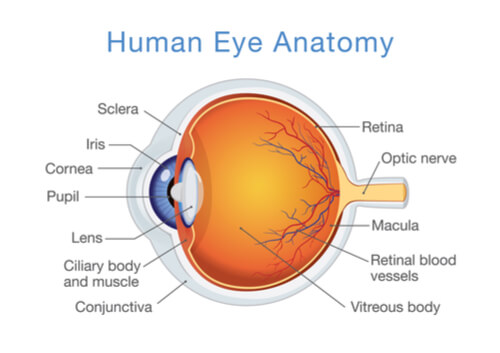What is a Botched Cataract Surgery?
Do you or someone you love have cataracts? You may be starting to consider whether you need cataract surgery to remove them. Although rare, it is possible to suffer complications during cataract surgery.
When this happens, you may experience what’s known as a botched cataract surgery. The good news is that here at Desert Vision Center, Dr. Tokuhara can address these issues and allow you to see clearly after having cataract surgery.
Keep reading to learn more about botched cataract surgery and what it means.
Understanding Laser Cataract Surgery and Possible Complications
When you have cataracts, the natural lens of the eye becomes cloudy, making it harder to see through. Proteins in the lens of the eye begin to clump together, creating a cataract.
Patients experience symptoms like blurry vision, light sensitivity, glare, halos, and double vision with cataracts, among others. The only way to regain clear vision is to have your cataracts removed during cataract surgery.
At Desert Vision Center, we offer patients both traditional cataract surgery and laser cataract surgery. Choosing laser cataract surgery is a precise procedure that uses laser technology and intraoperative aberrometry (ORA).
Adopting these techniques leads to the best possible results for patients. Your cataract surgeon removes the natural lens during laser cataract surgery and replaces it with an intraocular lens.
The intraocular lens (IOL) is an artificial lens that takes over the job that the natural lens once performed. The IOL provides patients with the clear vision they’ve lacked due to having cataracts. Using a laser removes the cataract by breaking it into small pieces, making it easier to take out.

Advances in technology have made cataract surgery one of the safest and most successful surgical procedures performed today. Roughly 3.5 million of these surgeries are performed every year in the United States. According to the American Academy of Ophthalmology, almost all cataract procedures are successful and do not have serious complications.
While the vast majority of cataract patients recover fully after having cataract surgery, a small percentage will experience complications. A cataract procedure is “botched” if the patient has medical complications that they would not have suffered if they did not have the surgical procedure.
The fact is, things can inadvertently go wrong during cataract surgery. Some of the potentially rare complications of a botched cataract procedure are iris damage and posterior capsule rupture.
Iris Damage
The iris is the colored part of your eye. When you are having cataract surgery, the iris may become “floppy” and bulge out of the incision.
Several reasons could be responsible for a prolapsed iris, including:
- Pressure gradient
- Poor pupil dilation
- A patient moving during surgery even under anesthesia
- An anterior chamber that is not deep enough
- A poorly created corneal incision
- Floppy iris or history of prostate medicine such as tamsulosin
An injured iris can interfere with pupil function, cause excessive inflammation, and result in abnormal pupil size or shape. In addition, some cataract patients with iris damage have severe glare symptoms that make them extremely sensitive to bright lights.
Treatment for a Damaged Iris
A damaged iris can be fixed by suturing the iris and then tying knots within your eye. Suturing the iris and tying knots within the eye will reconnect the pupil and sphincter muscle.
Posterior Capsule Rupture
The posterior capsule can rupture when probed by a surgical instrument at any stage of your cataract surgery. If this happens, tiny fragments of the cataract can drop through the tear or hole in the capsule. These fragments can fall to the back of the eye near the retina.
A posterior capsule rupture has potentially severe complications, which include:
- Difficulty placing the intraocular lens during cataract surgery
- Vitreous loss has a link to a high risk of excessive postoperative inflammation, glaucoma, retinal detachment, and cystoid macular edema
The risk factors of a posterior capsule rupture include:
- Age
- Small pupil size
- Dense cataracts
- Diabetic retinopathy
- Vitreous opacities
- Glaucoma
- History of retina treatment such as vitrectomy or retina injections
Treatment for Posterior Rupture Capsule
In a posterior rupture capsule, the vitreous attached to the retina can move forward into the anterior chamber. If the vitreous moves forward, it can pull the retina with it. The result of this may end up tearing the retina or putting holes in it.

All the vitreous in the capsular bag and anterior chamber, together with the small pieces of cataracts, should also be carefully removed.
From there, the IOL can be implanted in the sulcus. The sulcus is the space between the back of the iris and the front of the capsule. Alternatively, your surgeon can also place the intraocular lens in the anterior chamber or the capsular bag.
The best option will depend on the size of the rupture on the capsule. If a more extensive rupture occurred at the back surface of your iris, you could have the IOL placed in the sulcus.
But in the case of an overly large rupture on the front and back surface of the bag, it’s best to implant the IOL with a Yamane technique using the haptic arms of the lens implant to fixate the lens to the internal scleral wall of the eye. If it’s only a small rupture, your surgeon can put the intraocular lens in the capsular bag.
Have You Suffered From Complications During a Botched Cataract Surgery? We Can Help
If you notice anything that looks out of place after cataract surgery, it’s crucial to get in touch with Dr. Tokuhara at Desert Vision Center as soon as possible. With Dr. Tokuhara, you can be confident in his integrity, skills, extensive experience, and track record.
At Desert Vision Center, we’re dedicated to doing everything possible to preserve your vision and ensure you have a better quality of life with improved vision. Do you suspect you may have had a botched cataract surgery?
Get a second opinion by scheduling an appointment at Desert Vision Center in Rancho Mirage, CA, today.

